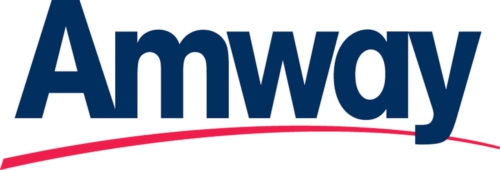eSpring™ Brand is First to be Certified to All 15 New NSF/ANSI 401 Emerging Contaminants
New industry standard addresses removal of 15 additional contaminants from drinking water
ADA, MICH., December 16, 2014 /3BL Media/ – When the world’s leading brands in home technology seek third-party verification of their products, they often turn to NSF International. NSF International is a global, independent organization that sets standards for product safety and tests and certifies products for compliance, and recently gave the eSpring™ Water Treatment System the first certification for removal of all 15 “potential contaminants” included in the new NSF/ANSI 401 drinking water treatment standard.
The new standard addresses the ability of a water treatment device to remove up to 15 additional potential contaminants from drinking water, including pharmaceuticals, over-the-counter medications, herbicides, and pesticides. The eSpring™ system is also the first water treatment system to be certified to meet NSF/ANSI Drinking Water Standards 42, 53, 55B, and 401 requirements.
“This latest NSF certification is an independent verification of the eSpring™ brand’s continued performance in effectively reducing even trace levels of contaminants in drinking water,” said Mitchell Urbytes, director of Global Home Brands for Amway. “It also provides our customers with a greater sense of confidence and trust – further evidence that they have made a smart choice for their home.”
NSF/ANSI 401 was developed by members of NSF International’s Joint Committee on Drinking Water Treatment and the NSF Task Group on Endocrine Disrupting Compounds and Pharmaceuticals and Personal Care Products in cooperation with other industry, academic and regulatory experts to assure consumers of the performance of water treatment systems. A recent independent survey conducted on behalf of NSF International indicated that 82 percent of Americans are concerned about pharmaceuticals and other contaminants in their drinking water and the new standard seeks to provide them some measure of reassurance.
“While the industry isn’t currently aware of negative health effects associated with trace levels of these contaminants, many consumers understandably want to have the highest quality drinking water possible for themselves and their family,” said Rick Andrew, NSF International Business Development Director for Global Water Programs.
“The cutting-edge innovations of our talented scientists and engineers continue to raise the bar on industry standards for home water treatment systems,” Roy Kuennen, Ph.D., vice president of Durables Research and Development at Amway. “We listen to, and understand, the concerns of our customers, and work diligently to provide them products that are the ideal balance of performance, ease of use and value.”
The new standard sets requirements for water treatment and filtration devices that reduce up to 15 potential contaminants, which have been identified in published studies as occurring in drinking water.
Prescription Drugs
- Meprobamate: a compound found in anti-anxiety drugs.
- Phenytoin: an anti-epileptic drug.
- Atenolol: a beta blocker drug.
- Carbamazepine: an anti-convulsant and mood-stabilizing drug.
- Trimethoprim: an antibiotic medication.
- Estrone: a prescription birth control drug.
Over-the-Counter Medications
- Ibuprofen: an over-the-counter pain reliever and anti-inflammatory medication.
- Naproxen: an over-the-counter pain reliever and anti-inflammatory medication.
Herbicides and Pesticides
- DEET (N,N-Diethyl-meta-toluamide): a pesticide and common active ingredient in insect repellents.
- Metolachlor: an organic compound that is widely used as an herbicide.
- Linuron: an herbicide often used in the control of grasses and weeds.
Chemical Compounds
- TCEP (tris(2-carboxyethyl)phosphine): a chemical compound used as a flame retardant, plasticizer and viscosity regulator in various types of polymers including polyurethanes, polyester resins and polyacrylates.
- TCPP (Tris(1,3-dichloro-2-propyl)phosphate): a chemical compound used as a flame retardant.
- BPA (Bisphenol A): a chemical compound used as a plasticizer.
- Nonyl phenol: a collection of compounds often used as a precursor to commercial detergents.
###
About Amway
Amway is an $11.8 billion direct-selling business based in Ada, Michigan, USA. Top-selling brands for Amway are Nutrilite™ vitamin, mineral and dietary supplements, Artistry™ skincare and color cosmetics, and eSpring™ water treatment systems – all sold exclusively by Amway Business Owners. Global sales in 2013 made Amway the #1 direct selling business in the world, according to the Direct Selling News 2014 Global 100. For company news, visit globalnews.amway.com.
About NSF International
NSF International is a global independent organization that writes standards, and tests and certifies products for the water, food, health sciences and consumer goods industries to minimize adverse health effects and protect the environment (nsf.org). Founded in 1944, NSF is committed to protecting human health and safety worldwide. Operating in more than 155 countries, NSF is accredited by the American National Standards Institute (ANSI) and is a Pan American Health Organization/World Health Organization Collaborating Center on Food Safety, Water Quality and Indoor Environment.
In addition to developing and certifying to drinking water standards, NSF services include food safety and quality programs; management systems registrations; sustainability standards development, claims and product verification; training, consulting, auditing, GMP and GLP testing, certification, R&D and regulatory guidance for the pharmaceutical and medical device industries; and testing and certification programs for bottled water and beverages, dietary supplements and consumer products.

